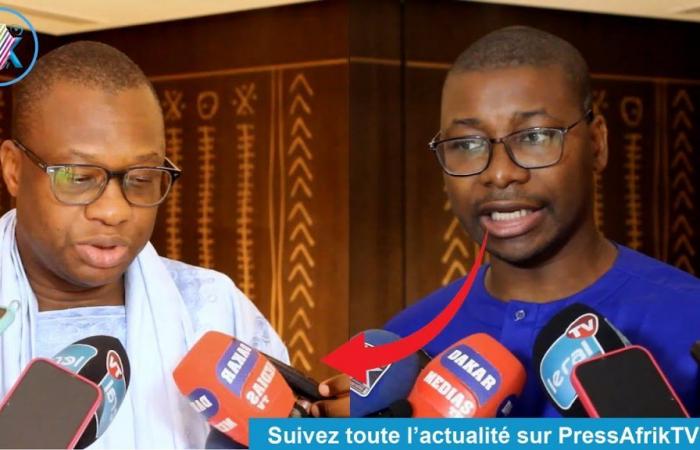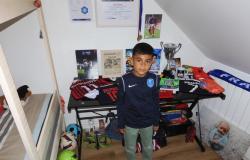Several experts from the education sector spoke at length this Tuesday in a hotel in Dakar to assess the innovations brought by the private sector and NGOs in education in Senegal. This meeting? under the initiative of the WATHI Think Tank with the support of the Irish Embassy in Senegal? was also an opportunity to see how these innovations have improved the quality of education in Senegal, in terms of academic performance, access to education, and reduction of inequalities. Another point that was the subject of discussion is how to establish collaboration between the public sector, the private sector, and the ONs. This is to maximize the impact of educational innovations, Identify the challenges faced by the private sector and NGOs in implementing educational innovations among others.
The State, in its education efforts, spends at least 30% of its budget to cover the educational needs of the Senegalese people. In this context, the State of Senegal, according to the organizers, for several years has benefited from the support of private education which has 5,000 authorized private establishments. “Which is not at all a small enough figure compared to public establishments. Even if the offer only covers 20 to 30% of the school population. The importance of private education no longer needs to be demonstrated” , declared the President of the Federation for Education and Training, Mamadou Cissé.
“In terms of quality, they are achieving good results, but also in terms of diversification of the educational offer. It is the private sector which is invested in areas of training not yet invested by the public sector. Political innovations in the educational system to training offers, professional training, training offers,” added Mr. Cissé.
Asked about the challenges, he adds: “The challenges are numerous. First of all, they can actually impact quality. Whether it is of the digital order, of the educational order, it can meet the needs, which can fit into the vision of the education policy drawn up by the state of Senegal. Which is to train a citizen who is capable of impacting the life of the nation in a positive way. And that, whatever the innovations proposed we must work in synergy.”
The President of the National Union of Secular Private Schools of Senegal also questioned the purposes of digital technology. “Today, as we speak, this must have an impact on the quality of results. And on the educational options of the State of Senegal. So, we think that the State of Senegal must work with the private sector so that there is much more autonomy, so that these innovations can be a reality in our education system. Today, the state of Senegal wants to introduce English in elementary schools, while in the private sector, we know that this has been a reality for more than twenty years…. Advertising is in the experimental phase and the experience drawn from the private sector can be used so that the introduction of English can be a much more dynamic reality in the public system,” he said.
Mieux continues Mamadou Cissé: “We learned the internal regulations like everyone else. I think this is in the normal order of things. We are in an education system. When we talk about the education system, it is the public sector and the private sector. There are educational standards which are established by our authorities, the Ministry of National Education, the ministry in charge of education. I think it is completely normal that the internal regulations are modeled to avoid each establishment having its own internal regulations. We are in a system and this system responds to the needs of satisfying an order. This command is launched by the state. And the State of Senegal has all the obligations to legislate in this sense.
For Gilles Yabi, founder and executive director of WATHI, this round table aims to “contribute to the creation of a space for constructive debate and in-depth reflection on innovations in the education sector introduced by the private sector and NGOs and the way in which they contribute to improving the quality of education in Senegal. He recalls that Wathi “is a platform for reflection on West African issues that they have set up for 9 years based in Senegal, but with a regional perspective”. Another idea, continues Mr. Yabi, “is to say that on all questions which concern our societies and their future, all citizens are legitimate to participate in the discussion”.
For him, this also implies having access to knowledge on this subject. “What we are trying to do across the region is to make knowledge and ideas available through publications and round tables. For us, education is the priority among the priorities. In relation to all the challenges we have, there is always an element of response to all the challenges we have, the security challenge, the educational challenge. This is why we have a large part of the answers that come through education. And this is why we have a series of events around the question of the transformation of the education system in West Africa in general and in Senegal in particular. For us, this discussion was focused on a specific theme carried by private actors, non-governmental organizations so that we find that there are possibilities of transferring some of these innovations to the public sector. So the idea was to encourage the sharing of knowledge in relation to experiences on other large private schools which have made more room to maneuver changes in their educational approaches.
Present at the meeting, Derek Hannon, Ambassador of Ireland to Senegal, declared that: “This is the first event organized in person as part of the theme of the year, focused on education. We were delighted to support WATHI which organized numerous events throughout 2024 on topics such as women’s access to STEM education, the place of local languages in education, and menstrual poverty in schools as a challenge to girls’ education.
I also encourage you to visit the very informative dedicated page on the WATHI website created this year as part of the focus on education.
In Ireland, the theme of education is particularly close to our hearts. Education has played a key role in Ireland’s history of national development, from a poor agrarian society with high rates of emigration to a country today transformed economically and socially. Education has been a key catalyst for this transformation. We have experienced first-hand the transformative potential of education as a driver of sustainable development.”






